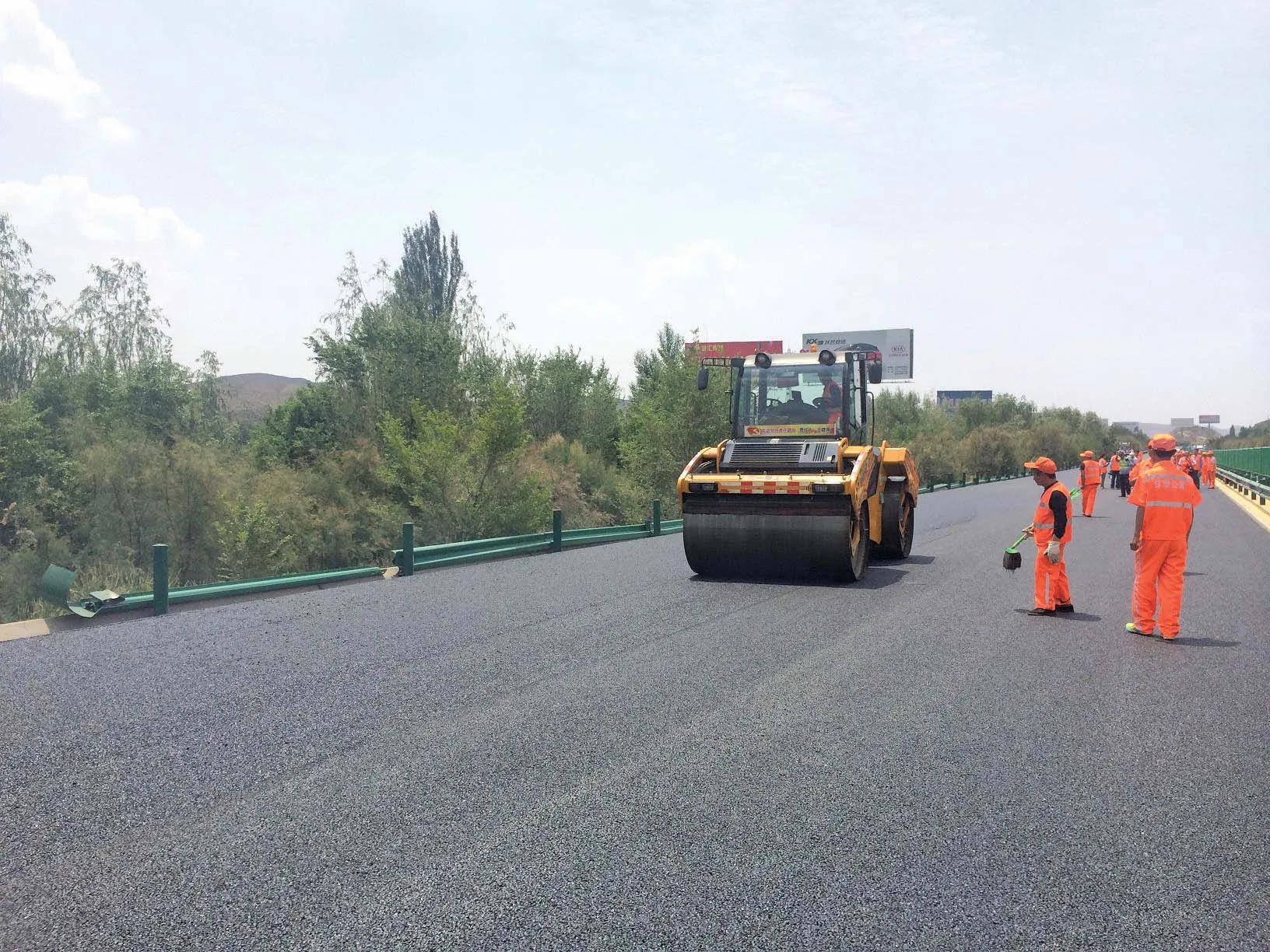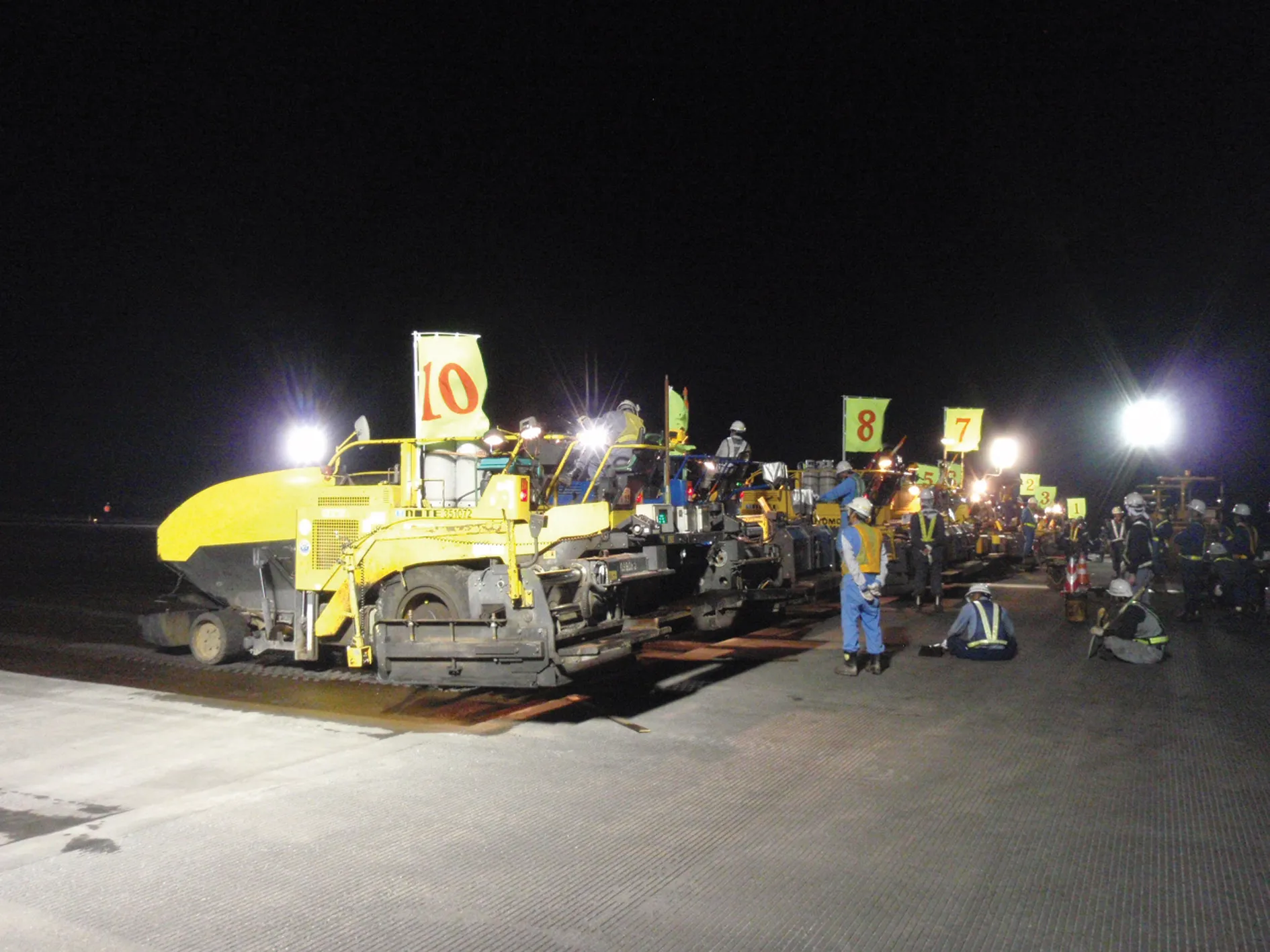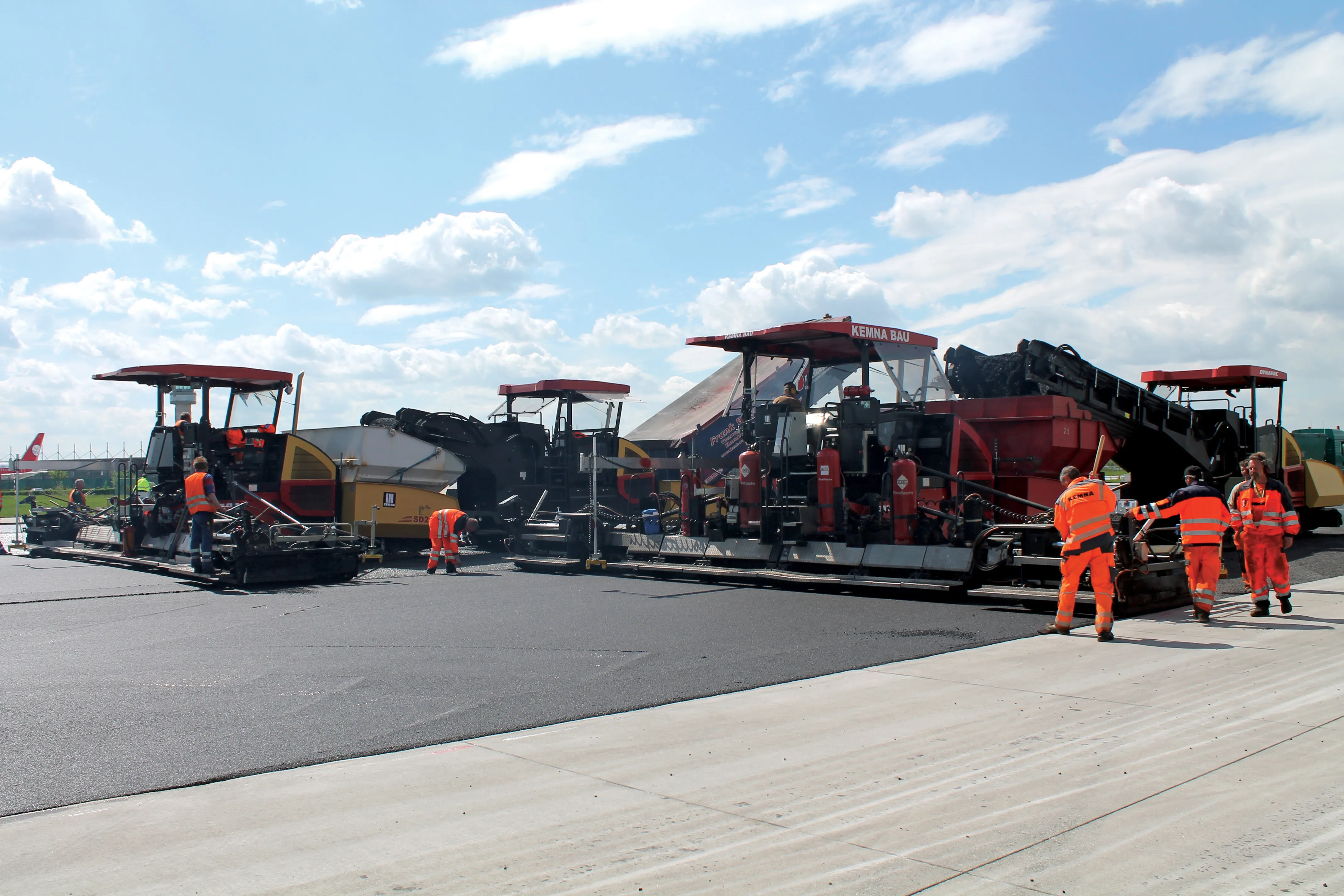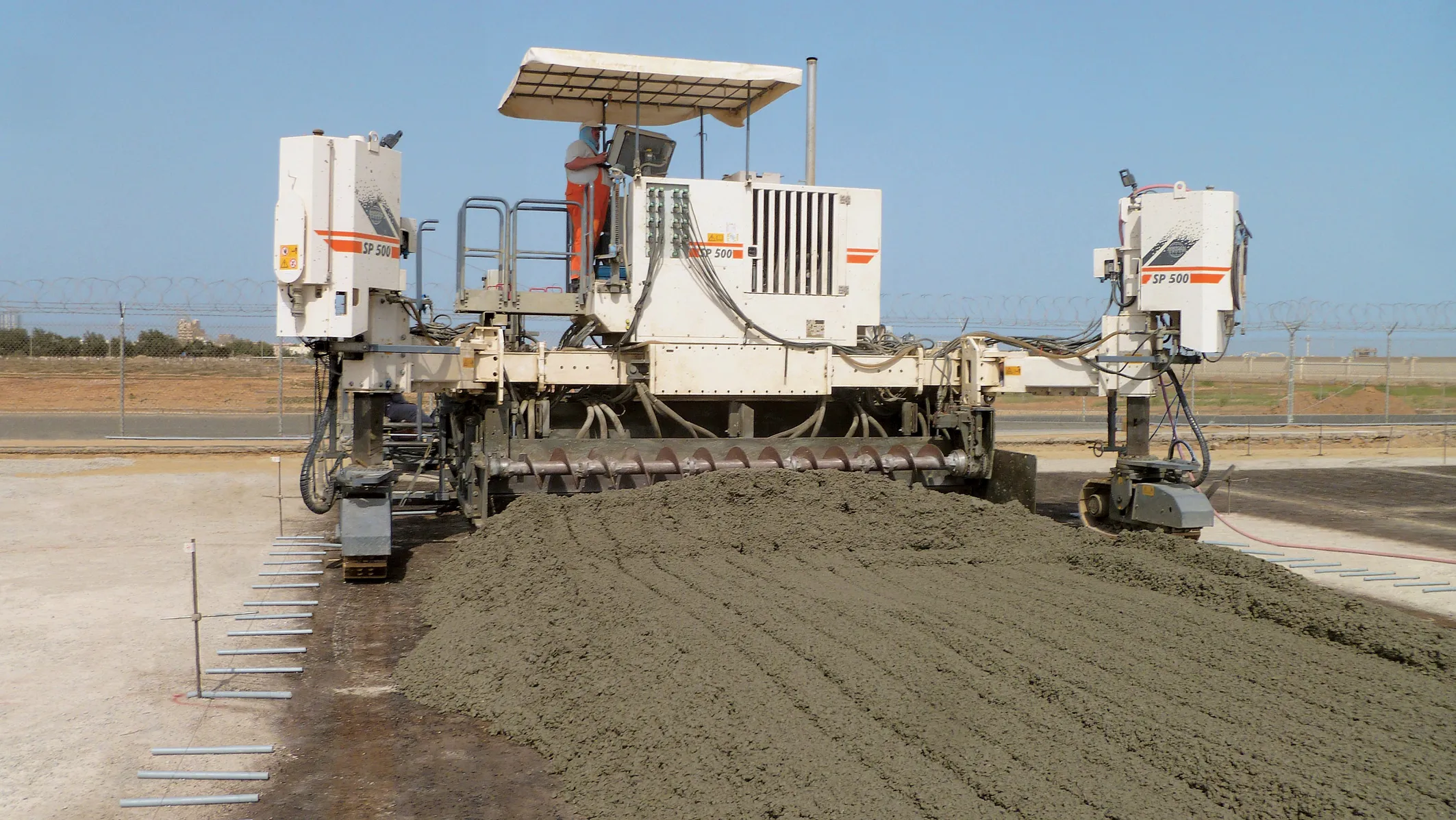An upgraded road link will reduce travel time to and from Lanzhou Zhongchuan Airport in China
Work on the expressway connecting Lanzhou Zhongchuan Airport to Lanzhou city centre is now underway. An important role in the resurfacing work is being played by the use of materials supplied by Shell Bitumen. The facility is the main airport for Gansu Province and it is of major economic importance to the region. The expressway runs some 70km from Lanzhou Zhongchuan Airport to the centre of Lanzhou. Work on the
December 10, 2015
Read time: 3 mins

An upgraded road link will reduce travel time to and from Lanzhou Zhongchuan Airport in China
Work on the expressway connecting Lanzhou Zhongchuan Airport to Lanzhou city centre is now underway. An important role in the resurfacing work is being played by the use of materials supplied by Shell Bitumen. The facility is the main airport for Gansu Province and it is of major economic importance to the region. The expressway runs some 70km from Lanzhou Zhongchuan Airport to the centre of Lanzhou. Work on the expressway commenced in July 2015 following a successful onsite inspection in June 2015 by a 100-member contingent from the Gansu Expressway Bureau.
This project forms part of China’s US$79.8 billion infrastructure plan for Gansu province to boost trade and transportation. This programme of works is the country’s One Belt, One Road initiative, which was in launched in 2013. The initiative has seen a major increase in demand for high quality bitumen in China. Road authorities are keen to use quality materials so as to maximise the working life of roadways, needed to pave the thousands of kilometres of highways (as well as high-speed rail links). The total transport infrastructure investment in the initiative is estimated to hit $5 trillion in the next five years, equivalent to 2.5 times the market size in China.
Shell is one of the largest international bitumen suppliers in China and has a dedicated bitumen technical service team in the country. Shell imports most of its bitumen supply for China from its own plant in Pulau Bukom, Singapore, to provide Chinese customers. As well as providing high quality bitumen, Shell also operates one of its three bitumen-dedicated Regional Solution Centres in Beijing, China. The company also operates three bitumen manufacturing plants as well as two joint venture plants in strategic regions throughout China, producing high quality polymer modified bitumen (PMB) products.
The firm markets both conventional bitumen and specialised bitumen products to customers in China, including Shell Cariphalte, its polymer modified bitumen (PMB) solution. This latter product is recommended for use in heavy-duty applications such as expressways and airport runways. The company also markets a range of emulsions used in road paving and other asphalt-based products used in industrial applications. In addition, Shell Bitufresh, a specially formulated bitumen additive designed to neutralise bitumen odour, is also offered in China.
Shell Bitumen has supplied its expertise in bitumen technology to some of China’s most important infrastructure projects including the 302km-long Guangdong Guangle Expressway, Beijing’s Changan Avenue’s East section and 2nd Ring road used during the APEC meeting held in Beijing in 2014. Shell supplied bitumen for the roads surrounding Beijing Olympic Park and the China Pavilion during the 2010 World Expo held in Shanghai.
Work on the expressway connecting Lanzhou Zhongchuan Airport to Lanzhou city centre is now underway. An important role in the resurfacing work is being played by the use of materials supplied by Shell Bitumen. The facility is the main airport for Gansu Province and it is of major economic importance to the region. The expressway runs some 70km from Lanzhou Zhongchuan Airport to the centre of Lanzhou. Work on the expressway commenced in July 2015 following a successful onsite inspection in June 2015 by a 100-member contingent from the Gansu Expressway Bureau.
This project forms part of China’s US$79.8 billion infrastructure plan for Gansu province to boost trade and transportation. This programme of works is the country’s One Belt, One Road initiative, which was in launched in 2013. The initiative has seen a major increase in demand for high quality bitumen in China. Road authorities are keen to use quality materials so as to maximise the working life of roadways, needed to pave the thousands of kilometres of highways (as well as high-speed rail links). The total transport infrastructure investment in the initiative is estimated to hit $5 trillion in the next five years, equivalent to 2.5 times the market size in China.
Shell is one of the largest international bitumen suppliers in China and has a dedicated bitumen technical service team in the country. Shell imports most of its bitumen supply for China from its own plant in Pulau Bukom, Singapore, to provide Chinese customers. As well as providing high quality bitumen, Shell also operates one of its three bitumen-dedicated Regional Solution Centres in Beijing, China. The company also operates three bitumen manufacturing plants as well as two joint venture plants in strategic regions throughout China, producing high quality polymer modified bitumen (PMB) products.
The firm markets both conventional bitumen and specialised bitumen products to customers in China, including Shell Cariphalte, its polymer modified bitumen (PMB) solution. This latter product is recommended for use in heavy-duty applications such as expressways and airport runways. The company also markets a range of emulsions used in road paving and other asphalt-based products used in industrial applications. In addition, Shell Bitufresh, a specially formulated bitumen additive designed to neutralise bitumen odour, is also offered in China.
Shell Bitumen has supplied its expertise in bitumen technology to some of China’s most important infrastructure projects including the 302km-long Guangdong Guangle Expressway, Beijing’s Changan Avenue’s East section and 2nd Ring road used during the APEC meeting held in Beijing in 2014. Shell supplied bitumen for the roads surrounding Beijing Olympic Park and the China Pavilion during the 2010 World Expo held in Shanghai.








